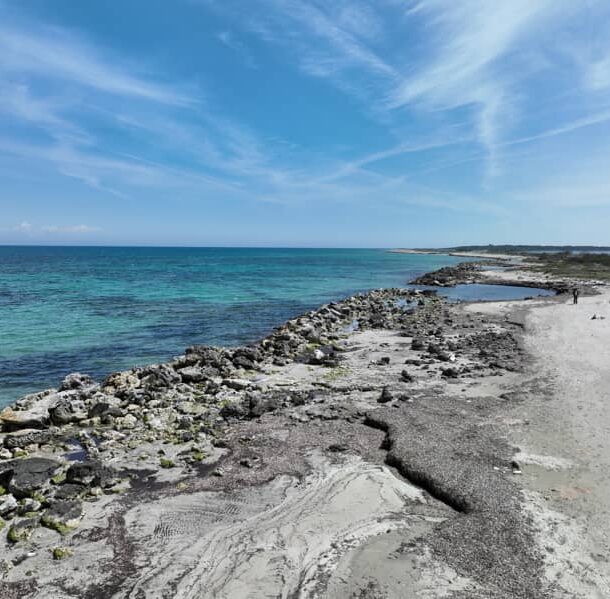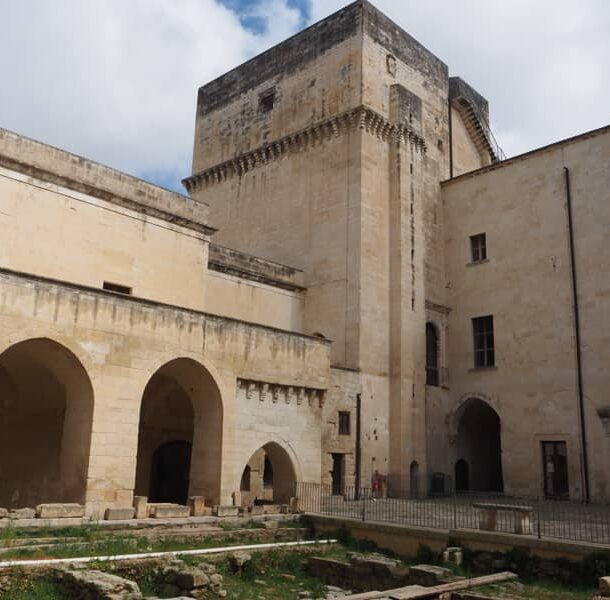
Grecìa Salentina: a journey through language, music, and identity
In the heart of Salento, between Lecce and Otranto, lies a unique area of southern Italy where time seems to have preserved the sounds, words, and traditions of an ancient past: the Grecìa Salentina.
Here, the grika language still echoes through the squares, the music tells stories of the people, and the culture thrives through gestures, dances, and songs that speak of identity.
Visiting these villages means embarking on an authentic journey through the deep South, where Greek and Salentine influences have blended to create one of the Mediterranean’s most fascinating cultural landscapes.
An ancient heritage between history and legend
The Grecìa Salentina is made up of eleven towns in the province of Lecce — including Calimera, Martano, Corigliano d’Otranto, Melpignano, and Sternatia — united by a history that dates back to the times of the Byzantine Empire.
It is believed that the origins of the grika language, still spoken today by some of the elderly residents, go back either to the Greek colonies of Magna Graecia or to Byzantine monks who, after the fall of Constantinople, found refuge in Salento.
The term “Grecìa” is more than a geographic label — it’s a symbol of cultural resilience, a reminder of how a community can preserve its linguistic and spiritual identity through the centuries.
The grika language: words that tell a story
The grika language, now considered a linguistic rarity in Europe, is the beating heart of this land. It’s a blend of ancient Greek, Salentine dialect, and Latin influences — a melodic tongue that reflects the deep connection between the people and their land.
In the cafés and piazzas of Calimera or Martano, you might still hear someone say kalinifta (“good night”) or efcharistò (“thank you”). It’s more than just a language — it’s a way of belonging and passing on a shared heritage.
Local schools and cultural associations regularly organize courses, workshops, and theatre performances in griko, helping keep this ancient voice alive.
Music as a bridge between past and present
Grika folk music is one of the most vibrant expressions of this region’s culture. The pizzica grika — a variation of the famous Salentine pizzica dance — intertwines ancient rhythms and songs in the grika language that speak of love, work, and spirituality.
Every summer, the area comes alive with festivals and traditional celebrations. Among them, the Notte della Taranta stands out as the largest folk music event in Italy, centered in Melpignano. Thousands of people gather to dance, sing, and celebrate a culture that keeps evolving while staying true to its roots.
Here, music isn’t just entertainment — it’s collective identity, a living memory that renews itself with every beat of the tambourine.
The villages of Grecìa: a mosaic of authenticity
Each village in the Grecìa Salentina has its own distinct soul — a mix of architecture, tradition, and heartfelt hospitality.
-
Sternatia is the linguistic heart of the region, where griko is still spoken daily.
-
Calimera, meaning “good morning” in Greek, hosts the Museum of Grika Civilization, a small but fascinating space that preserves the cultural memory of the area.
-
Corigliano d’Otranto enchants visitors with its Castello de’ Monti, a Renaissance fortress that now serves as a hub for cultural and musical events.
-
Martano, the largest village, is a labyrinth of white alleys, underground oil mills, and quiet courtyards where time stands still.
-
Melpignano, the musical capital of Salento, combines historic charm with innovation, thanks to projects in sustainable tourism and cultural regeneration.
Walking through these towns means experiencing the true essence of Salento, where language, art, and community still shape everyday life.
An identity that looks to the future
Today, the Grecìa Salentina is a living cultural laboratory, where tradition and innovation coexist. Younger generations are rediscovering their roots through music, theatre, and experiential tourism.
Cultural heritage projects, themed itineraries, and food-and-wine routes allow visitors to connect directly with the local community, learning grika words, tasting traditional dishes, and listening to stories passed down through generations.
Visiting the Grecìa Salentina isn’t just a journey into the past — it’s a vibrant experience that invites reflection on what it means to truly belong to a place.
A journey into the soul of Salento
The Grecìa Salentina is a microcosm of culture, spirituality, and beauty — a land where every stone, word, and melody tells the story of a people who have managed to preserve their identity through time.
Between language and music, faith and memory, this region moves and welcomes, reminding visitors that Salento is not merely a destination — it’s a story to listen to, slowly, with an open heart and a curious gaze.
Viale Alfieri, 11 – 73100 Lecce
Tel.: +39 0832 230030
Email: info@eoshotel.it
P.IVA: 03296760758
CIN: IT075035A100021486
Disclosure obligations for public disbursements: State aid and de minimis aid received by our company are contained in the National Register of State aid pursuant to art. 52 of Law 234/2012 to which reference is made and which can be consulted at the following link.
